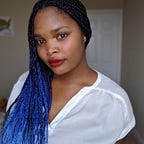Where the Parents At?
Why parents should think twice before putting Black kids in predominantly white spaces
It’s Black History Month, and per usual, I’m angry. Cue the Baldwin quote about being black, conscious, and angry in America. So what, you may ask, am I angry about this month?
My resolution this year is to read more works by black women. It’s a conscious decision that I am making to include the thoughts, works, and lives of black women around the globe in my life.
This month I read Men We Reaped — a memoir about Jesmyn Ward’s life growing up in coastal Mississippi. Not to spoil the book, (it’s definitely a read), but in the story, Jesmyn wrote about how her mother fought to place Ward, a poor rural black girl, in a predominantly white upper-class school. One afternoon, after picking her daughter up, Jesmyn is telling her mother about a school project to which her mother tells her (I’m paraphrasing), “Stop talking like that. You’re talking like them.”
For those of us, who have been accused of “talking white” this hits close to home. It hurts to hear. It’s painful, but it also makes me angry.
When I was seven, I was placed in gifted and talented classes, and as the story goes for most like me, I was around insensitive white kids who tore me apart and made me…
